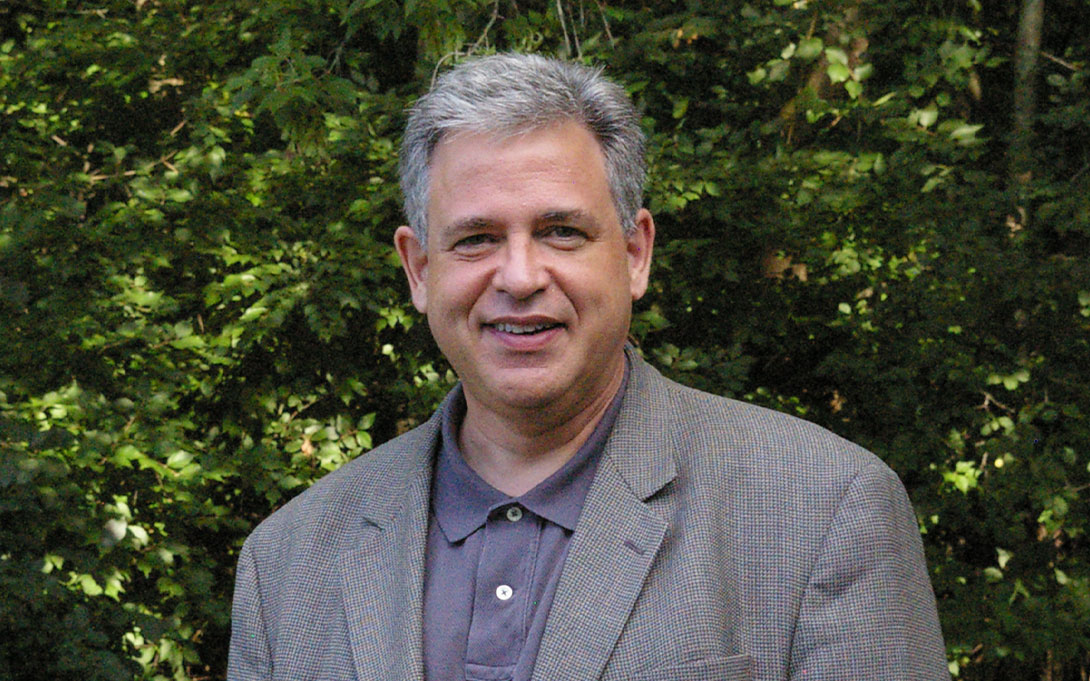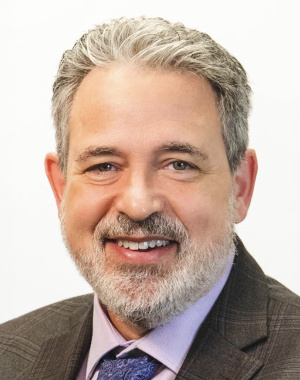
The Ford School is delighted to announce that a number of faculty members will join our community this fall. To introduce them to the Ford School community, we’re running weekly Q&As throughout the summer that touch on their policy and personal interests alike.
Here’s Bill Axinn, professor of sociology; research professor with the Survey Research and Population Studies Centers, and now a courtesy professor at the Ford School, on improving human happiness, measuring things-that-are-really-hard-to-figure-out-how-to-measure, internship opportunities with the Women's Refugee Commission, being chased by a rhinocerous (while riding an elephant), paradise, great TV, and more.
Q. What inspired you to pursue a career in sociology?
Axinn: While in college at Cornell University I had the opportunity to travel to Nepal several times. I was doing work on my undergraduate thesis when I saw three Nepalese porters, each carrying more than 200 pounds, barefoot, walking through snow, singing. The prior semester I knew of two different undergraduates who had attempted to commit suicide in their dorm rooms. I decided that there is more to human happiness, satisfaction and success than just economic prosperity. That decision has guided my work ever since.
I was attracted to demography because of its explicitly interdisciplinary nature and because of its strong problem focus. And I was attracted to family studies because family relationships are such a tremendously powerful influence on individuals’ lives and a crucial link between macro-level social change and individual-level outcomes. When I learned that the empirical social sciences often avoid topics when strong measures aren't clear or easy to come by, I gravitated toward mixed-methods data collection, with a focus on measuring things-that-are-really-hard-to-figure-out-how-to-measure. It pushed me to study the consequences of attitudes and beliefs on behavioral decisions, and eventually steered me toward topics I study now, like mental health and sexual assault.
Scientifically, little motivates me more than fellow scientists announcing that something cannot be done… But because time is finite, I try to focus on issues related to improving human happiness and satisfaction….
Q. What inspires you? Angers you? Or keeps you motivated to pursue your work?
Axinn: Public policies and social welfare programs designed and implemented without the benefit of strong scientific evidence angers me a lot. Not only because of the waste, but also because of the potential to do more harm than good. It has always inspired me to create data about social issues and problems. From early childhood in Nigeria to later childhood in Nepal I learned that often times policies and programs launched to help the most excluded, poorest, or most in need actually do more harm to those groups than good. The sheer power with which U.S. actions and ideas shape the lives of millions (billions) living outside of the U.S. made me embarrassed, ashamed, and angry that we have so little information guiding our actions. As my career evolved into opportunities to shape the scientific infrastructure for data creation and collection, I have tried to be steadfast in pursuing globalized data creation that can guide our understanding of the human population worldwide.
Q. What courses do you plan to teach in the coming year?
Axinn: Although I am scheduled to be on leave this coming year, I will teach a one-week course on Mixed Method Data Collection Strategies in the Survey Research Center’s Summer Institute. I’m also supervising internships with the Women’s Refugee Commission and mentoring PhD students. Though I have always enjoyed teaching, I also believe some of the best teaching I do is through individual mentoring. The internships will give Ford School students a bit of mentoring and an opportunity to apply their skills to creating scientific evidence for policies and programs to improve the lives of women and children refugees worldwide.
Q. Favorite TV series?
Axinn: Inside Amy Schummer and Archer. Amy is exceptionally intelligent, fearless in addressing the most sensitive social issues, and unashamed that sexuality is an important dimension of social life and human happiness. And she uses bad words. Archer just uses bad words.
Q. All-time favorite vacation spot?
Axinn: The Four Seasons Maui – snorkeling with sea turtles, hiking a bamboo rain forest, Thai food next to black lava beaches, and bobbing in the waves on a nude beach – paradise.
Q. One of the strangest things you’ve ever done?
Axinn: There are so many… At age 12, while riding an elephant I was chased by a rhinoceros through the jungle. Whenever I am giving a presentation to groups of faculty I always remind myself that I survived being chased by a rhinoceros.
Q. Something most people don’t know about you?
Axinn: Everyone knows I cannot keep my mouth shut… this means most people who know me know whatever there is to know about me.
Q. Your basic life philosophy?
Axinn: Your focus determines your reality; work worth doing is worth doing with excellence; we made the world what it is and we can make it what we think it should be; working hard is better than being lazy; if you worry about what other people think, focus on what your children will learn from you not how your parents might judge you; and millions and millions of people in this world live in poverty with very few choices – if you live a life of privilege it is your duty to devote those privileges toward improving life for those who do not share your good fortune. Oh ya, and everybody dies, life is short, don’t squander it!
Check out Bill's bio then head over to Twitter to welcome him to the Ford School.
